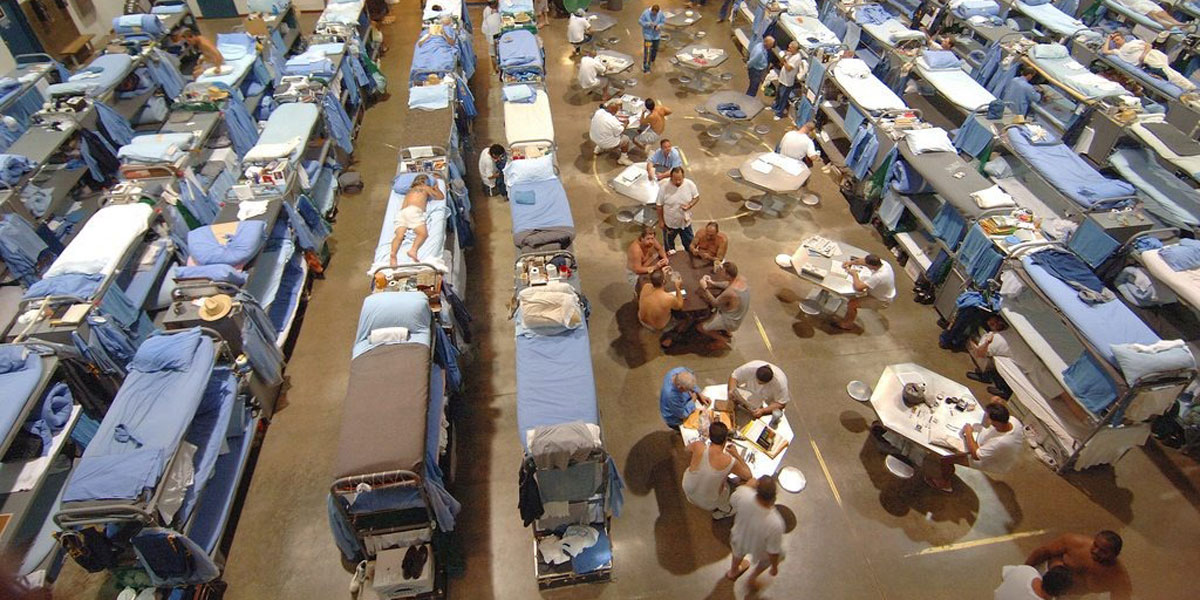Paying the price for gung-ho justice


Rann and Foley in 2010: their successors have no choice by to unpack 'em, unrack 'em and unstack 'em.
The State Government faces enormous challenges to fix pressures on the justice system caused by its former gung-ho approach, argues Morry Bailes.
This year will be a year of reform for the criminal justice system in this state. A reformist Attorney-General, the Deputy Premier John Rau, has signalled his intent to turn his attention to criminal justice.
The current problems with the criminal justice system in this state extend beyond the court system and includes correctional services as well as entrenched “siloing” between relevant public sector agencies, as remarked on by Rau himself. Those agencies include SAPOL, the Office of the Director of Public Prosecutions, Corrections, the Courts Administration Authority and the Attorney-General’s Department.
In a nutshell our challenges are these:
- Outdated infrastructure. We have antiquated court buildings, legacy IT systems operating in the courts and other public sector agencies, and arguably a shortage of both judges and court rooms.
- Unacceptable delays in concluding criminal matters in a timely way, particularly in the principle trial court, the Criminal District Court.
- Illogical boundaries between what types of matters are prosecuted by the Police as distinct from the DPP, and a resourcing problem if we are to expand the current role of the office of the DPP.
- A hopelessly under-resourced corrections system which infamously boasts – as it has done since 1985 – the highest remand population of any state or territory in Australia. The prison population rose 10 per cent year on year for both the 2013 and 2014 calendar years, according the Australian Bureau of Statistics.
Underpinning all of this is a state that seemingly cannot afford to adequately financially resource its criminal justice system.
One might ask how we got to this and I venture the following view.
Our government enthusiastically embraced a law and order platform but left out one vital ingredient – it failed to reckon on the cost.
In the 1970s the American Democrats were caught flat-footed by their Republican opponents on the law and order debate. The left of politics swore it would never happen to them again. With little rationale and no evidence, the US began a ludicrous politically-driven program of “law and order” and mandatory sentencing.
[The result is that in the US there are nine times the number of people incarcerated than in neighbouring Canada with zero to show for it. Crime rates have not decreased. Starting with the Republican state of Texas, the US states are unwinding their mandatory sentencing regimes, in recognition that they have been counterproductive. Interestingly, at the core of this change is an economic argument: it is simply too expensive to maintain its law and order approach.]

Prison overcrowding at the Mule Creek State Prison in Ione, California. Photo: California Department of Corrections and Rehabilitation.
Enter the Labor Government elected in South Australia in 2002, and two canny politicians – Mike Rann and his deputy Kevin Foley – recognised the political power of the law and order message. They began a US-style approach to the criminal justice system. The propriety of defence lawyers was challenged as well as their hairstyles. Judges’ sentences were questioned, and who can forget the phrase employed by Foley who suggested that what we should do with our criminal offenders was “rack ’em, stack ’em and pack ’em”.
Maximum sentences were increased and certain types of offending became “aggravated”, meaning they attracted higher sentences. Even more importantly, in 2003 our parliament acted to conclusively remove the old time limit for the prosecution of alleged sex offences, resulting in a court avalanche of what have become referred to as “historic” sex offences.
The conclusive removal of the time limit was the right thing to do, but the point is that it has had a dramatic impact of the capacity of the courts to hear matters in a timely manner. Even if a sexual offence trial is “reached” it is often at the cost of an “ordinary” trial – that is a matter that is not given priority. “Not being reached” is court speak for not having a judge available to hear a matter, resulting in it being adjourned to another date, often six to 12 months down the track. I have a client with an alleged aggravated assault matter that has not been reached three times and is now listed for the fourth time for trial. It is devastating not only to the accused person but to the complainant and all witnesses.
Kevin Foley’s remarks were made in 2008. Fast forward to the more balanced approach by Premier Weatherill and Attorney-General Rau, and many members of our government must rue its former gung-ho approach. As I referred to above, our prison population has risen 10 per cent year on year for two years straight.
Left with little choice – given that we were resorting to using police cells as correctional facilities and reportedly driving unhoused prisoners around in escort vans waiting for a spare cell to come up – the government announced late last year that some new Corrections beds would be opened. As usual it was dressed up as good news story; I would say the state had no choice. But the case for broader reform remains.
Part of the law and order hysteria has been less than thoughtful commentary from some parts of the community pedalled enthusiastically by some sections of the press.
Let’s be clear then. We have a fairly static population with limited population growth yet our prison population is increasing at an alarming 10 per cent per annum. Crime rates are also pretty static, so there is only one available conclusion – the responsibility lies with our government’s approach to law and order, which until the Weatherill government has been a carbon copy of outdated approaches in the US.
Our government enthusiastically embraced a law and order platform but left out one vital ingredient – it failed to reckon on the cost. Given that the US is 20 years in front of us and has taught us precisely what not to do, it is an unpleasant truth that the current government would rather forget.
Lo and behold we are now talking about why we need to hold so many people in custody and why they are refused bail when a large number are eventually bailed within 28 days. That doesn’t sound to me like “racking ’em”.
We are going to fine rather than incarcerate. That doesn’t seem like “stacking ’em”.
We are going to caution offenders and conditionally charge them. That isn’t “packing ’em”.
Kevin Foley must be disappointed.
Nevertheless, Rau is to be congratulated on turning his attention to a solvable problem. He is quite right to point to the “silo mentality” not only a feature of those agencies in the criminal justice area but the public sector generally. He is right to challenge our present culture both from the point of view of the legal profession as well as the community.
Part of the law and order hysteria has been less than thoughtful commentary from some parts of the community pedalled enthusiastically by some sections of the press.
Rau has displayed a consultative style and his legislative reform thus far has been deft in comparison with some of the hamfisted efforts of his colleagues.
His ultimate challenge, however, may be convincing an expectant community that the law and order approach has had its day and that common sense is back in town. I wish him good fortune with that.
Morry Bailes is managing partner at Tindall Gask Bentley Lawyers, Member of the Executive of the Law Council of Australia and immediate past President of the Law Society of SA.
His column will appear fortnightly in InDaily this year.
Disclosure: Morry Bailes is a member of the Liberal Party.




